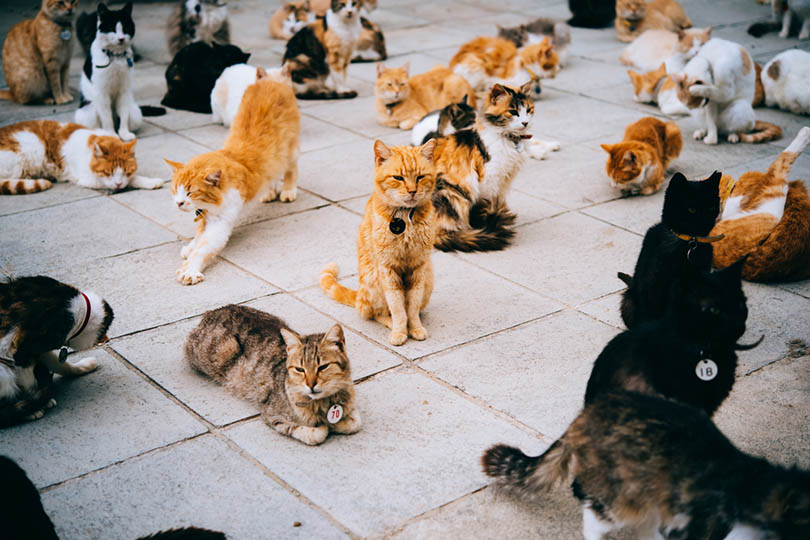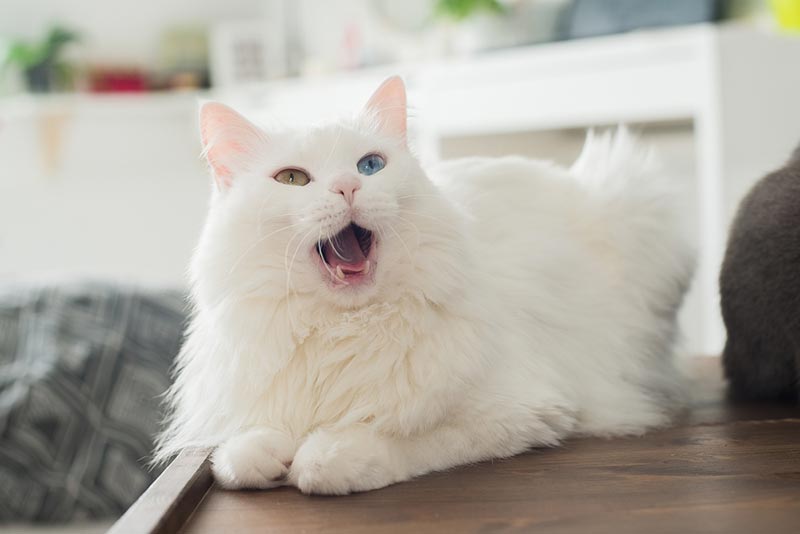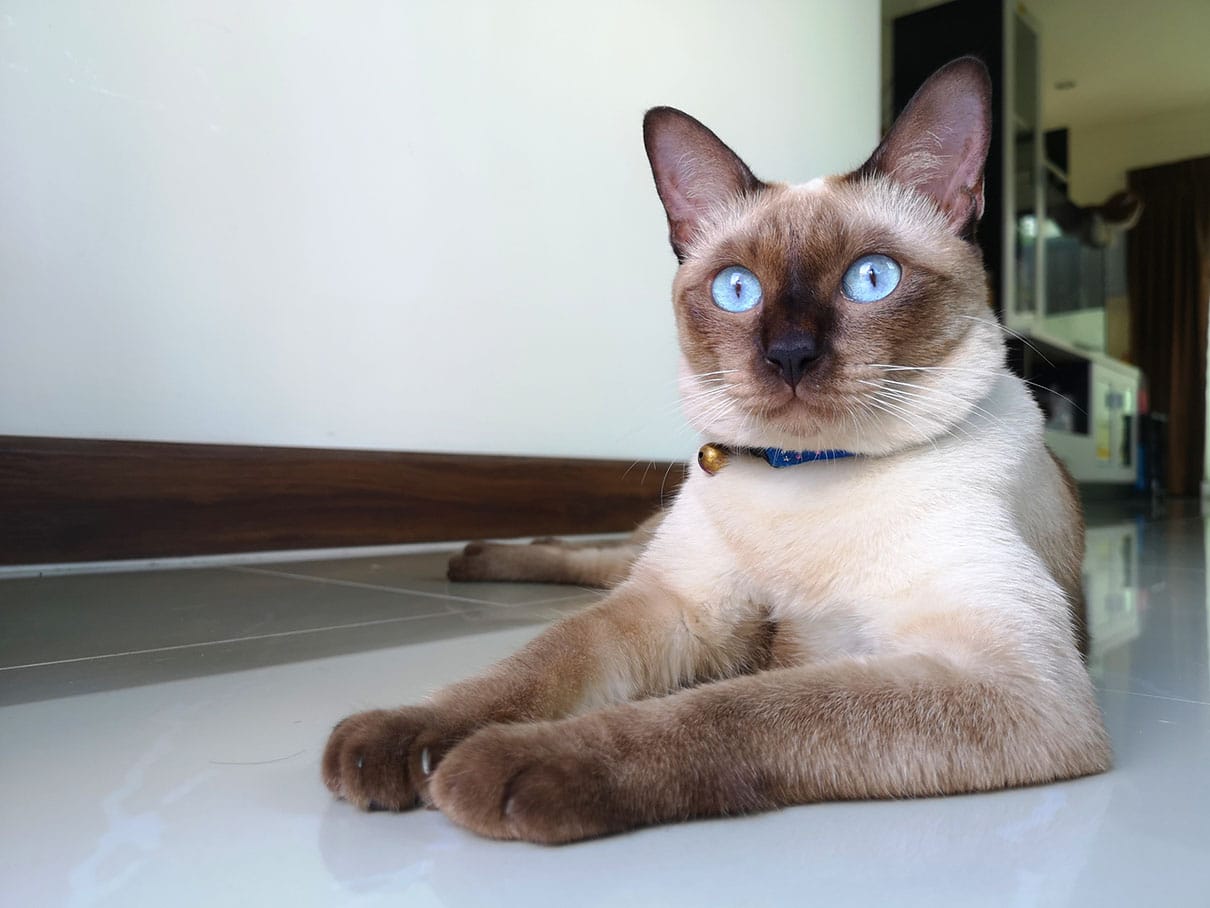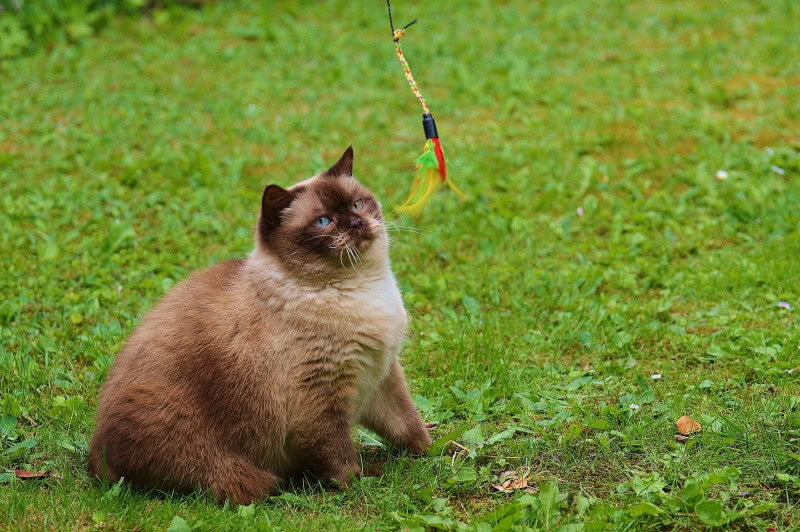Click to Skip Ahead
Have you ever wondered whether cats are pack animals? Look at feral cats! Feral cats survive entirely on their own, essentially without human companionship or assistance. Larger colonies can have 15 or more members, often related by matrilineal descent. And what about pets?
Pet cats often mourn after losing a beloved feline, canine, or human buddy, demonstrating how much some cats value companionship. There are plenty of reasons a sensible person might question the notion that cats are solitary, disinterested creatures. So, are cats pack animals, or do they prefer a detached life?
Cats aren’t pack animals by nature, but they adapt their behavior to accommodate groups, particularly when the animals involved are familiar with each other and there’s plenty of food to go around. Feral cats often bond deeply with their mother and littermates.

What Does It Mean to Be a Pack Animal?
Pack animals live in groups, and most work together to hunt. They also protect each other and help raise each other’s offspring. Packs usually have complex, hierarchical social structures.
Wolves are probably the pack animals people are most familiar with. Many scientists suggest that dogs don’t belong in the category as they never hunt cooperatively or share puppy-rearing responsibilities.
So, Feral Cats Aren’t Pack Animals
Feral cats can adjust the ways they interact with each other to accommodate the realities of group living. Most feral colonies are heavily matrilineal. They’re primarily made up of queens and their kittens.
Male cats who reach sexual maturity are usually kicked out, although some remain loosely affiliated with the colony while living on the group’s outskirts. Feral kittens rarely have contact with their biological fathers, as adult male cats are excluded from the settlement.
A few unrelated males usually hover around the fringes of these groups and are largely viewed with suspicion. Feral colonies work as long as the group members know each other well and there’s enough food to avoid competition.
However, cats that live in colonies remain solitary hunters. Feral cats don’t work together like a pride of lions to bring down prey. However, colony cats will often disperse if faced with long-term food scarcity.
There’s no genetic difference between feral cats and pet cats—they’re all part of the Felis cactus genus, which makes sense, as many feral cats are descended from abandoned pets. Felis catus, as a species, is incredibly good at adapting to whatever situation its members find themselves in.
Depending on the circumstances, they can happily live independently, in colonies, or with a four-legged friend or two. While they may help each other with kitten-rearing, most prefer to hunt alone.
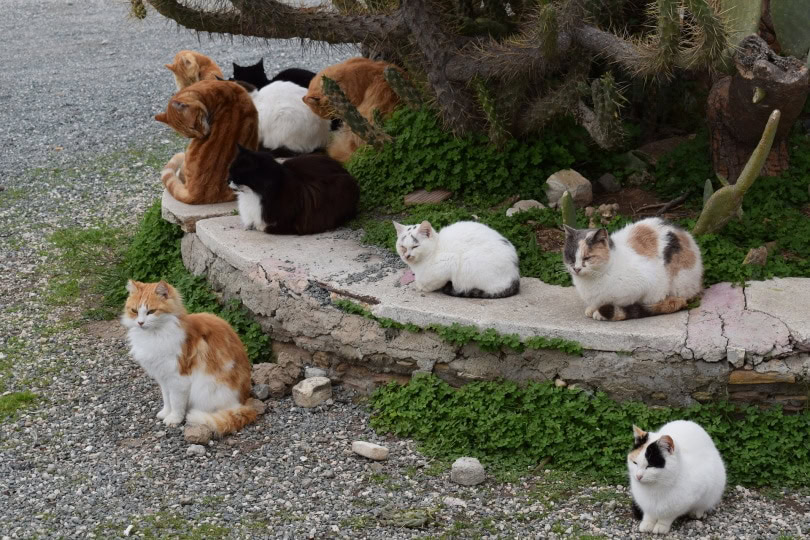
Do Cats Bond With Other Cats?
Cats bond deeply with their mother and littermates, often engaging in cooperative grooming and lots of head-butting to create a familiar scent shared between family members. Cats’ sense of smell is 14 times sharper than ours.
And they consistently use their sharp noses to identify family members, including humans! When a cat rubs their head against you, they leave behind their scent and take some of yours, creating a smell they use to quickly recognize you as belonging to the family group.
Littermates raised together are often highly affectionate and attached. Feral cats often form colonies of female relatives and their offspring. You’ll see cooperative feeding among queens in colonies, which builds bonds between unrelated colony mates.
Should Cats Always Live With A Buddy?
Two kittens who have always lived together will probably experience a bit of grief if separated. Adopting littermates together provides comfort, continuity, and companionship. Having a buddy often keeps energetic, growing cats occupied and out of trouble. But cats are also territorial, particularly ones that have never lived with other pets. Several cats won’t tolerate another dog or cat in the house.
Cats that don’t enjoy the company of other animals often become stressed when forced to share their home. Adding a new pet to the family can be traumatic for older cats who’ve grown accustomed to living alone. Cats that have lived with a dog or an unrelated feline often grieve the loss of that companion. Cats that are used to living with buddies sometimes enjoy the company of a new pet, but many don’t appreciate the presence of younger, rambunctious animals who tend to disturb the peace.
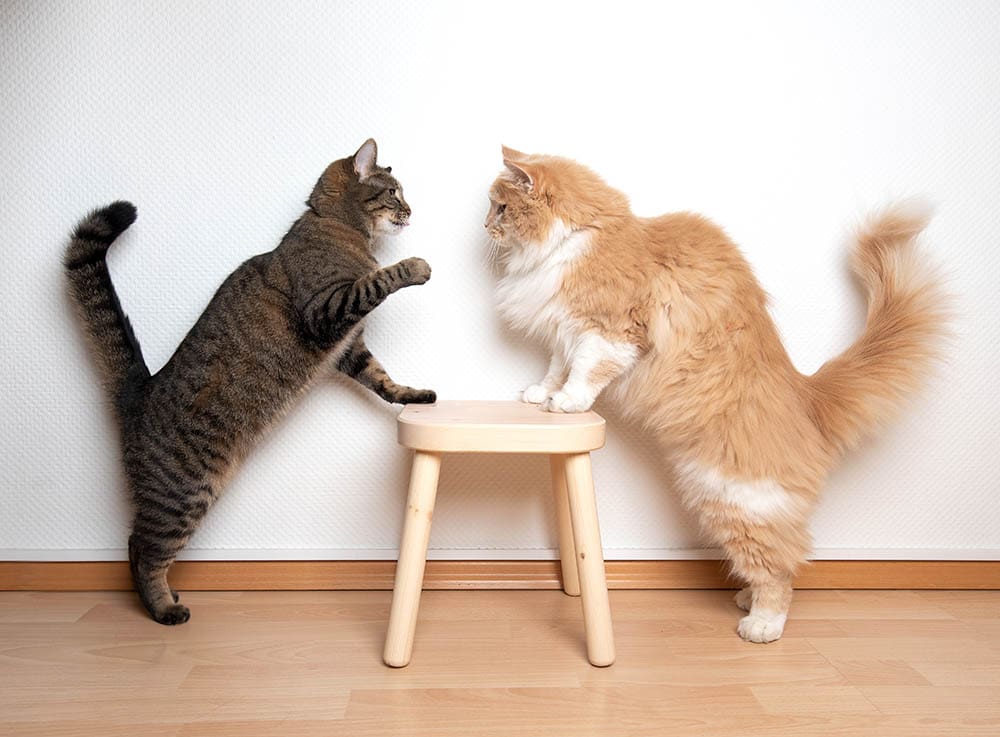
How Do Cats Feel About Their Owners?
Cats adore their owners but don’t see humans as members of a pack. Most cats prefer the company of their favorite human to play with a toy or snack on a treat or two. Cats have astonishing memories. Many can remember people for up to 10 years, particularly individuals they lived with for an extended period and once shared a strong bond with. Cats are often very in tune with their favorite human’s emotions.

Are Lions Pack Animals?
Yes. Lions are the exception to the rule regarding cats preferring to live alone. Most lions live in prides of several female cats and one or two males. They hunt cooperatively to bring down prey, such as buffalo, that no lion can take down single-handedly. They also raise cubs cooperatively. Male cubs are pushed out of the pride when they’re around 2 or 3, with most leaving to join another pride.
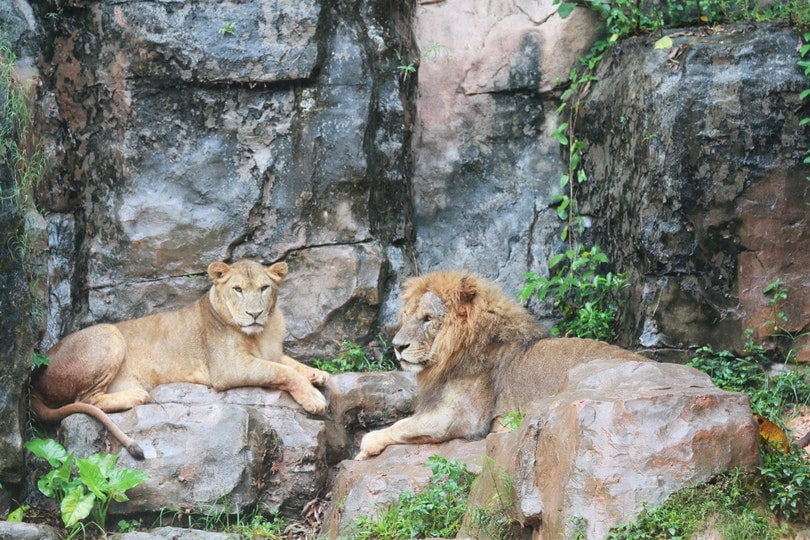
Are Lions the Only Big Cats That Live in Groups?
Yes. Lions are the only big cats that prefer to live and hunt in groups. Tigers, leopards, and jaguars, the other members of the Panthera genus, are solitary creatures. There’s little, if any, cooperative kitten-raising among tigers, leopards, and jaguars.

Final Thoughts
Even though cats can and do live in colonies and enjoy the company of people, dogs, and other kitties, felines aren’t pack animals. They’re solitary hunters who can adjust their behavior based on the environment, which leads to increased sociability in some situations.
Cats form deep bonds with their mother and littermates, as well as humans, dogs, and other cats they live with for long periods. Some even mourn after a companion’s death. Cats don’t create loving bonds because they need to be a pack member but because they enjoy being around particular individuals.
See Also:
Featured Image Credit: Yulia Grigoryeva, Shutterstock
